In the 1980s and
1990s, Turkish police routinely raided gay bars,
detained transvestites, and banned homosexual conferences
and festivals.
Next month, in a
sign of how the state has loosened up, gay activists
will hold forums on several university campuses to discuss
their rights and the discrimination they still face.
Gays in Turkey
say they lack legal protections and face social stigma in
a Muslim nation with a secular tradition of government that
has implemented broad reforms in its bid to join the
European Union--but remains heavily influenced
by conservative and religious values. For the most
part, they face less pressure than in Egypt, Saudi Arabia,
and other Muslim countries where Islamic codes are
enforced with more rigor.
However, Turkey's
gays are jostling for more rights in a crowded field.
The historical
feud between Turks and Armenians as well as the concerns
of ethnic Kurds and minority Christians attract more
international attention and produce more pressure for
change on the Turkish government.
''There are so
many problems in Turkey,'' Ali Erol, a member of the gay
rights group Kaos GL, said in an interview in his office in
Ankara, the Turkish capital. ''It looks as though gay
rights are put down below in the list of things to be
taken care of.''
In March the
chief editor of the group's magazine, also named Kaos
GL, was acquitted of charges that he had illegally
published pornography in a July 2006 issue after a judge
noted that copies were seized before they were put on
sale. The editor, Umut Guner, could have faced several
years in jail if convicted.
The issue that
got the magazine in trouble showed two images of men in
explicit sexual poses, beside an article that editors
described as an analysis of issues relating to
pornography. The magazine began publishing in 1994 and
became legal when it secured a license five years later. It
comes out every two months and has a circulation of up to
1,000.
In recent years
Turkey reworked its penal code to bring it into line with
European standards. The new version does not specifically
ban discrimination on the basis of sexual orientation,
although the issue was discussed at the draft stage.
Justice Ministry
officials had said that laws banning discrimination on
the basis of gender, race, ethnicity, religion, and
political views were enough to protect its citizens.
''There are some
hate-crime articles in the criminal code, but they are
not used appropriately,'' said Levent Korkut, head of
Amnesty International's operations in Turkey.
''Impunity is a problem in this area.''
He noted that
even some Turks who describe themselves as liberals say.
''We don't want to protect these people.''
Gay sex is not a
crime in Turkey, and some clubs and cinemas in big
cities openly cater to homosexuals. Gay and lesbian
societies exist at several universities. But the vast
majority of gays remain discreet in a country where
liberal views have yet to make inroads in rural areas and
many urban settings. Municipalities have some leeway to
introduce laws safeguarding ''morality,'' which gay
activists view as a potential threat to their freedom.
Some gays,
notably poet Murathan Mungan and the late singer Zeki Muren,
achieved celebrity status and openly acknowledged their
sexual orientation. Similarly, historians and
novelists have referred to a degree of tolerance for
gay sex among some sectors of the elite during the
Ottoman Empire centuries ago.
Yet, for many,
being gay is an exercise in deception. One gay man, who
spoke on condition of anonymity, said he suffered years ago
because high school classmates kept calling him
''ibne,'' a derogatory word for gay in Turkish.
The man, now a
university student, said he avoids physical contact with
his boyfriend when they are in public and passes him off as
a close friend. He said he is often mocked if he wears
an article of clothing that people think is feminine.
Unable to find
regular jobs, many transvestites and transsexuals work as
prostitutes, an often dangerous profession that has led to
the murders of some at the hands of clients.
Some hate-crime
deaths were never publicized because police did not
reveal the sexual orientation of the victims, according to
gay activists. In other cases, they said, gays who
were harassed or physically harmed because of their
orientation did not report the incident or go to court
because they wanted to avoid scrutiny.
The European
Union has funded gay groups in Turkey, which sometimes
coordinate with the Turkish Ministry of Health and other
government agencies. Kaos GL has links to Lambda
Istanbul, a gay group in Turkey's biggest city, and
will host an international antihomophobia meeting on
university campuses in Ankara next month.
''We want to
share and learn the experiences of all gays and lesbians who
struggle against homophobia in the Middle East, Balkans,
Europe, and the other parts of the world,'' the group
said in a statement. It has invited international
speakers, including journalists and European lawmakers, who
will discuss gay issues in their own countries.
The Kaos
GL magazine paid tribute to Hrant Dink, an ethnic
Armenian journalist who was slain in January, allegedly
by extremist nationalists, by printing a somber image of him
on the back cover of a recent issue.
''Those people
who murdered Hrant Dink do not like us either,'' Erol
said. (Christopher Torchia, AP)





























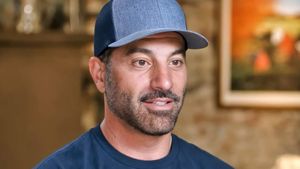

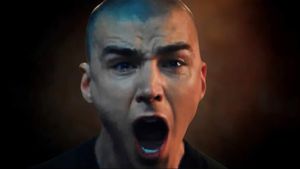





























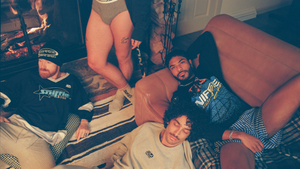
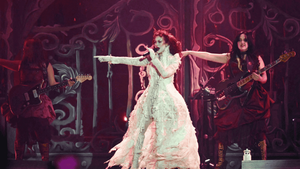


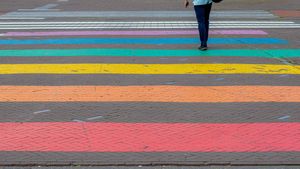


Charlie Kirk DID say stoning gay people was the 'perfect law' — and these other heinous quotes